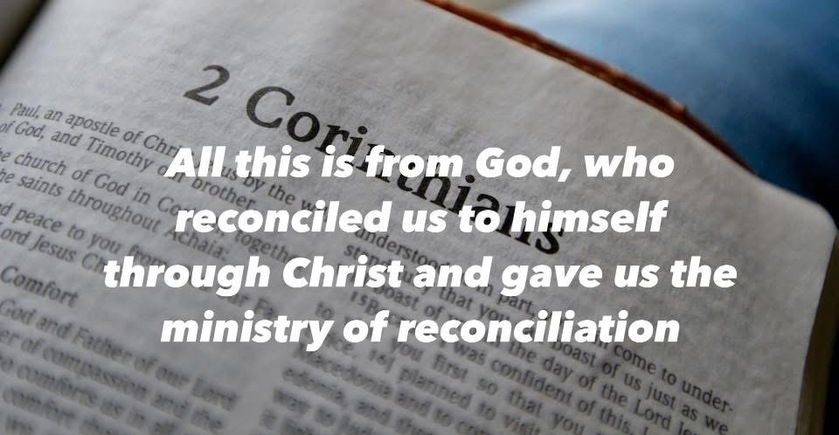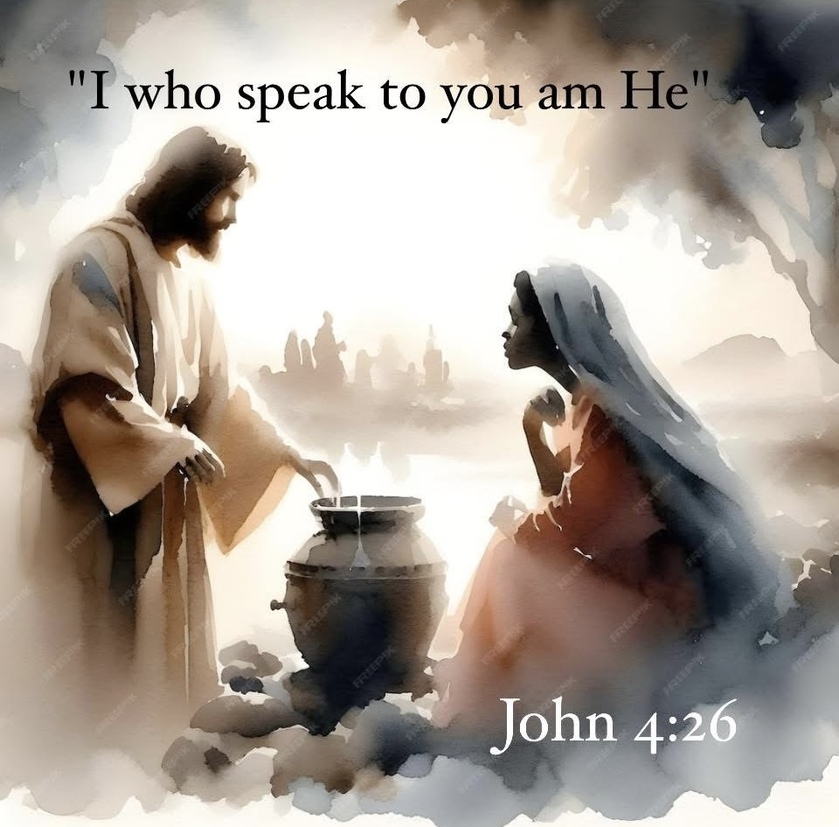Empowered by Grace: Proclaiming the Unstoppable Word Amid Resistance
Acts 20:32
"And now I commend you to God and to the word of his grace, which is able to build you up and to give you the inheritance among all those who are sanctified."
The law (the natural order of things established by God) came down to men through Moses, and God's glory in made known to men through nature, but God's grace ("the word of his grace) comes through those who are in Jesus Christ. This draws from Romans 1:20, where creation testifies to God’s eternal power and divine nature, making humanity without excuse, yet it stops short of revealing the redemptive grace found in Christ (as echoed in Psalm 19:1-6 for glory, contrasted with the law and gospel for salvation). Paul’s words in Acts 20 emphasize that grace is not innate in the natural world but is conveyed through the "word of his grace", the gospel message that builds up believers and secures their eternal inheritance. This responsibility falls to followers of Christ, starting with the apostles and extending to every believer, as the Great Commission in Matthew 28:19-20 underscores.
Central to Paul's testimony is his unwavering commitment to "testify to the gospel of the grace of God" (verse 24), even knowing imprisonment awaited him in Jerusalem. This "word" edifies the church, fostering spiritual growth and assuring believers of their share in the sanctified community (echoing themes in Ephesians 1:11-14, written later by Paul). He warns of coming "fierce wolves" (false teachers) who will twist the truth (verses 29-30), urging vigilance in shepherding the flock purchased by Christ’s blood (verse 28). Paul’s life exemplifies the faithful witness, empowering believers to inherit eternal life, declaring the truth, the whole counsel of God. He finished the course set before him when Christ said to him...
Acts 9:16, the risen Lord tells Ananias,
"For I will show him how much he must suffer for the sake of my name."
Paul’s sufferings would authenticate his testimony, open doors for proclamation, and mirror Christ’s own path to glory through the cross. Just as Jesus’ suffering provided salvation, Paul’s would extend its offer to the Gentiles, turning a former persecutor into a vessel of grace. Suffering here isn’t optional but integral to the calling—Paul’s "must" reflects divine necessity, shaping his ministry from Damascus onward. And Paul views his life as expendable for the sake of completing this grace-proclaiming race, knowing trials like imprisonment await him.
This "course" (Greek: dromos, meaning race or mission) is explicitly mentioned in Acts 20:24:
"But I do not account my life as of any value nor as precious to myself, if only I may finish my course and the ministry that I received from the Lord Jesus, to testify to the gospel of the grace of God."
Fast-forward to near the end of his life, imprisoned in Rome, Paul reflects triumphantly in 2 Timothy 4:7:
"I have fought the good fight, I have finished the race [course], I have kept the faith."
This isn’t boasting but a testimony of faithfulness amid suffering—beatings, shipwrecks, and imprisonments (2 Corinthians 11:23-28)—all endured by Paul gladly and with contentment to declare the whole counsel of God.
Paul’s commendation in Acts 20:32 isn’t a mere goodbye; it’s a profound handover, a passing of the baton, entrusting the Ephesian elders to God’s care and the empowering message of grace, which actively "builds up" the church (edifying and strengthening believers spiritually) and grants the "inheritance" of eternal life among the sanctified—those set apart by faith in Christ. This isn’t just pastoral advice; it’s a call to protect the purity of the grace message against distortions, ensuring it continues to build and inherit.
The connection is clear: the course begun in Acts 9:16, affirmed in Acts 20:24, is completed in 2 Timothy 4:7, leading to the "crown of righteousness" (2 Timothy 4:8) as the ultimate inheritance. Paul’s life exemplifies how the word of grace thrives not despite suffering, but through it. As he commends others to this word, he embodies its power: it built him up from a persecutor to an apostle, secured his inheritance, and propelled him to finish strong.
For us today, this challenges believers to embrace our own "course", proclaiming grace in a world that knows God’s glory through nature but resists His redemptive word. And oh boy, does "the word" trigger this resistance from people. Just drop a gospel message in a social media post and watch how they respond. Riots break out. Post about grace on Reddit and watch the people flock to it in order to destroy it. The proclamation of God’s grace often ignites this sort of fierce opposition in today’s digital arenas, much like the riots Paul encountered in Ephesus. And if I had to guess, their motives are similar as well. With Paul his message caused silversmiths to stir up crowds against the Way because it threatened their idols and livelihoods. There, the message of Christ disrupted the status quo, leading to chaos; similarly, dropping a gospel truth on platforms like Reddit or X can unleash a torrent of downvotes, mockery, or outright hostility. This isn’t new, humanity’s resistance to redemptive grace stems from the same spiritual tension Paul described in Romans 8:7, where the mind set on the flesh is hostile to God. Yet, as believers embracing our "course", we’re called to persist, knowing the word of grace builds up the faithful amid the storm, securing our inheritance despite the backlash.
And the backlash, in the West, lives on in social media. This is the case because the live and in-person church has become lukewarm and irrelevant. So the seekers, the prophets, the atheists, teachers and preachers, all go out into the world of human thought amid the algorithms via social media platforms. Yet, here’s the hope, Paul didn’t shrink back, and neither should we. His course through suffering (Acts 9:16) finished strong because the word of grace empowered him, building the church despite the fierce wolves. Today, amid online mobs, that same word transforms lives: algorithms may throttle, but one receptive heart can inherit eternity. And I've got to be honest, after decades of doing this, I've learned a lot about what I truly believe and hold dear in my faith. I've had to explain myself so often that I can draw from that experience like second nature now. This is made very clear to me when I'm serving in Kairos.
When I'm inside that prison, I have none of my usual digital tools, I don't even have my own printed bible to explain the word from. No phones, no google, no computers, no internet. Just me and "the word of his grace". And I surprise myself when having these up close and personal conversations as God's gospel messge comes pouring out of me as natural as breathing. It's in those moments I realize that the Holy Spirit is indeed with me.
It’s a vivid reminder that the "word of his grace" isn’t dependent on digital crutches, printed pages, cathedrals filled with relics, thousands of impressions, or even our own eloquence. In those raw, tool-less moments inside Kairos, where you’re face-to-face with imprisoned souls hungering for hope, the Holy Spirit takes over, pouring out the gospel. It's a beautiful affirmation of Jesus’ promise in Luke 12:11-12:
"Do not be anxious about how you should defend yourself or what you should say, for the Holy Spirit will teach you in that very hour what you ought to say."
Kairos volunteers make themselves vulnerable, stripping away the world’s distractions in order to focus on heart-level encounters, proving that the word builds up and inherits eternity not through gadgets, not through entertainment, not through magisterium or councils, but through surrendered lives empowered by the Holy Spirit. Which mirrors Paul’s unshrinking declaration of the whole counsel of God. In Kairos, devoid of Google or gadgets, we experience what Paul commended: entrusting souls to God and His grace alone, which edifies and inherits. This is the Holy Spirit at work, as in Acts 4:31, filling believers to speak boldly despite the dark atmosphere.
Conclusions:
Today, whether in prison cells or pixelated forums, that same Spirit transforms: algorithms may suppress, but one receptive heart, touched by an authentic post or conversation, gains eternity, as the gospel advances unhindered. It’s proof that grace isn’t confined to screens or cathedral sanctuaries but it flows through yielded vessels. Keep running your course, the Spirit will surprise you in those up-close moments, He will sustain you amid digital mobs and lukewarm tides.
Prayer:
Heavenly Father, thank You for the word of Your grace that builds us up and secures our eternal inheritance. As Paul endured trials to testify boldly, empower us by Your Holy Spirit to proclaim this redemptive truth, whether in prison walls, digital storms, or lukewarm gatherings. Give us courage amid resistance, that one receptive heart may inherit eternity through Christ. Amen.




















